

LUKE HAMBLY
CENTRE FOR DEMOCRATIC INSTITUTIONS
The second CDI Women in Politics (WiP) course was convened by Ms. Monica Costa and conducted from 7 to 11 December 2009 at the Australian National University in Canberra.
Inaugurated in 2008, the WiP course aims to build the capacity of social and political actors in the region with the goal of improving women's political representation. It is particularly designed for women intending to enter national politics in the Pacific Islands, whether as a candidate for elected office, a political party organiser, or similar role in the democratic process. To achieve this, the course assists participants from the Asia-Pacific region to identify strategies to get more women elected in their countries. The course equips participants with the tools and skills to engage in national politics and leadership at the highest level.
The course covers key issues:
- political parties' role in promoting gender equality in politics,
- electoral and political reforms to improve women's political representation, including temporary special measures, and
- candidate training (eg. election campaign, resource mobilization including campaign fund raising).
|
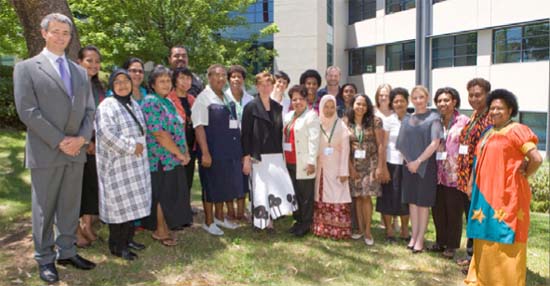 WiP 2009 Group Photo.
WiP 2009 Group Photo.
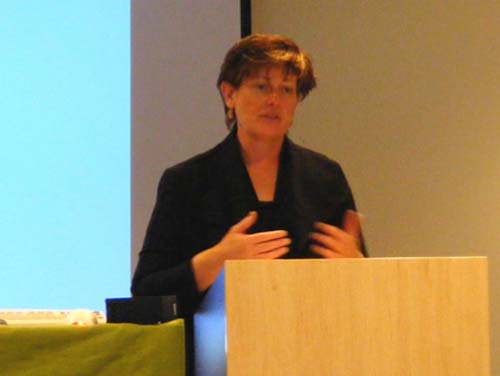 Ms Anna Burke MP Deputy Speaker of the Australian House of Representatives opens the course.
Ms Anna Burke MP Deputy Speaker of the Australian House of Representatives opens the course.
|
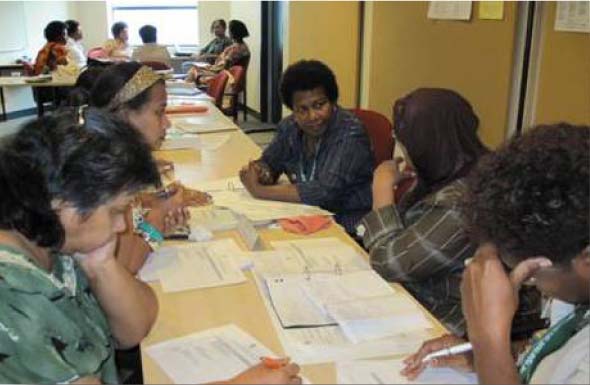
Participants in group work session.
The WiP course offers a unique opportunity for participants to learn and discuss Australian experiences of and practices in promoting gender equality as well as share their own experiences. The course explores avenues to translate this knowledge into the reality of Asia-Pacific contexts.
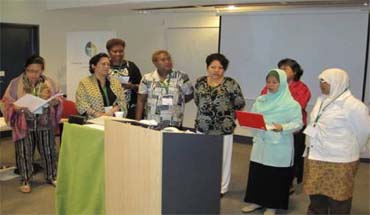 Group presentations on Day 2 of the course.
Group presentations on Day 2 of the course.
| |
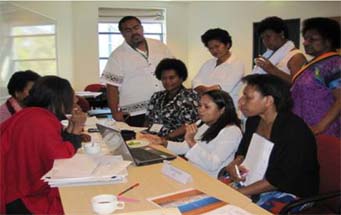 Participants in group work sessions.
Participants in group work sessions.
|
Eighteen participants from 10 countries, including all CDI focus countries, participated in the 2009 WiP course. Approximately half of the participants held positions related to politics while the other half was engaged in civil society. This year, for the first time, a UNIFEM staff member participated in the course as an observer/support to the convener. Close to 90 applications for 20 positions were received by CDI from 17 countries for the 2009 WiP course.
The course drew on a range of experts including Members of parliament, political party staff, private sector and academics. For example:
- Ms Anna Burke MP, Deputy Speaker (Labor) opened the course and set the scene on issues of women's participation and representation in politics in Australia and the Asia-Pacific region.
- Ms Ruth Webber MP (Labor), Senator Marise Payne (Liberal), and Ms Meredith Hunter (Greens) discussed different approaches to gender equality within political parties and drew on personal experiences of getting into politics and getting elected and re-elected.
- Ms Amanda Rishworth MP (Labor), as the Chair of the Australia/Pacific Parliamentary Friendship Group, led a session on steps for success in politics and brought the discussion on national action plans to a close.
At the end of the course, participants were required to prepare and present country action plans, outlining practical strategies to improve women's representation in politics at both national and sub-national levels. Participants were asked to consider how they and their organisation could contribute to improved women's representation.
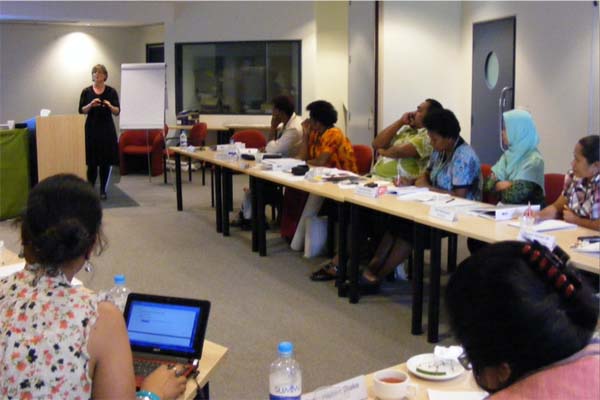
Campaigning to be elected to office: Ms Linda Reynolds (former Deputy Federal Director Liberal Party of
Australia) presenting on the techniques and benefits of a planned, strategic and practical
approach to the challenges of campaigning.
The course also created a unique opportunity for participants to build connections and networks between the participants and their Australian counterparts, be they female MPs, political party members and staff, journalists, or public servants.
The 2009 Women in Politics course built on the success of the inaugural 2008 course. The diversity of experiences brought to the course by the participants, both in terms of their country and sector of expertise was a key element for the success of this course. Overall participants were genuinely interested in learning, sharing and translating this knowledge into practice on their return. Several country representatives have asked CDI to deliver a similar course in their own countries.
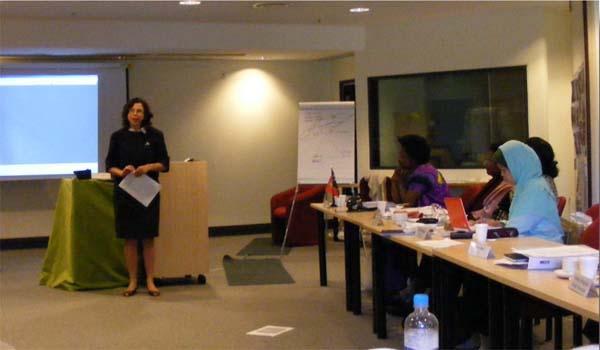
Chair of the Australia-Pacific Parliamentary Friendship Group,
Ms Amanda Rishworth MP presents the final session of the course.
The support and involvement of the Australian political parties and their parliamentarians was also critical to the success of the course. CDI thanks the parties for their support and active participation in the various sessions.
Click on this link for more on the details and outcomes of this course.
Endnote
[1] A version of this report first appeared as 'CDI's Women in Politics Training Course 2009,' in the Newsletter for the Centre for Democratic Institutions: CDI.NEWS, February-March 2010.

|
|



 WiP 2009 Group Photo.
WiP 2009 Group Photo.
 Ms Anna Burke MP Deputy Speaker of the Australian House of Representatives opens the course.
Ms Anna Burke MP Deputy Speaker of the Australian House of Representatives opens the course.
 Group presentations on Day 2 of the course.
Group presentations on Day 2 of the course.
 Participants in group work sessions.
Participants in group work sessions.

